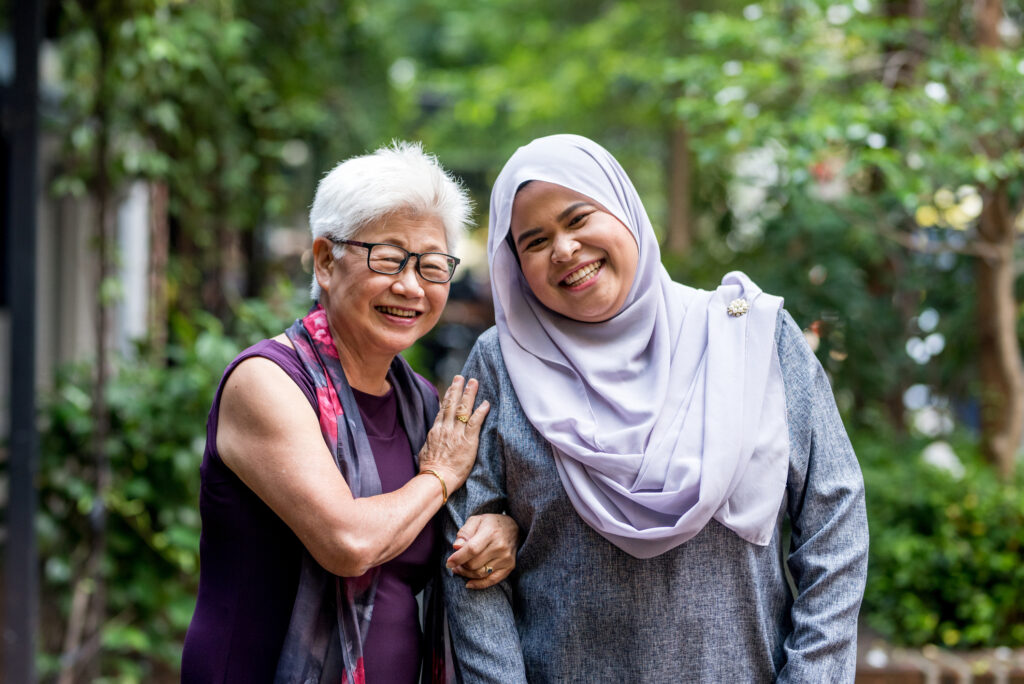The Family Caregiving Advisory Council held its third full council meeting on May 20 and 21, 2020, to hear presentations on key topic areas, including family leave, respite care, research and data, and an analysis of the input received from the Administration for Community Living’s (ACL) request for information. The council also refined its Driver Diagram to identify a set of recommendations to support family caregivers. A Driver Diagram is a visual display of a group’s philosophy on what “drives” or contributes to the fulfillment of a project goal. The Family Caregiving Advisory Council is developing a Driver Diagram as a consensus building tool to form the creation of the national strategy on family caregiving.
Family Caregivers and COVID-19
The second council meeting began with remarks from ACL Administrator and Assistant Secretary for Aging Lance Robertson who thanked council members for their flexibility, resilience, and dedication during the COVID-19 pandemic, which has further demonstrated how critical it is to have the right supports in place for caregivers. Robertson also acknowledged:
- The $100 million of funding ACL received from the Coronavirus Aid, Relief, and Economic Security (CARES) Act and the Families First Coronavirus Response Act that it awarded to states to help strengthen the caregiver support program;
- The progress to date on ACL’s Report to Congress; and
- The continued engagement of federal partners in supporting this work
Public Input
Through a request for information process, the ACL accepted comments from the public on key questions related to the RAISE Act and family caregiving. The public comment period for the request for information closed on Feb. 7, 2020.
Pamela Nadash, PhD, a professor at University of Massachusetts Boston, presented her team’s analysis of the input received from the ACL’s request for information to council members. The request generated 1,613 total responses, 75 percent of which were from individual family caregivers across the age spectrum and of varying racial and ethnic backgrounds with the remaining responses from organizations. The findings included:
- Respondents requested additional supports for service planning, family-centered care, and respite services.
- Family caregivers were concerned about financial security; many cited the need for a flexible work environment, part-time options, and paid time off.
- Respondents recommended payment for family caregivers, including in the form of tax benefits for purchasing supplies necessary to support their family caregiving.
- Many respondents expressed the impact caregiving has on their own physical and mental health.
Family Leave: Lynn Friss Feinberg with the AARP Public Policy Institute gave a presentation on the importance of family leave for employed family caregivers. Unlike previous generations, most (61 percent) family caregivers today work at a paying job. Family caregivers who stop working can face short- and long-term financial risks, including a loss of income, health insurance, Social Security and retirement benefits, and career opportunities. Council members discussed a variety of ways to support the financial security of family caregivers, including the provision of paid family leave, paid sick days, and family caregiver tax credits as well as prohibiting discrimination based on one’s family caregiver status among other protections.
Respite: Jill Kagan with the ARCH National Respite Network gave a presentation on respite care, including the different types of respite and the importance of person- and family-centered respite options. The presentation also noted the pandemic’s effects on respite availability and provision. COVID-19 has necessitated non-traditional ways of providing respite, including online interactions or phone calls, with some states having designated respite providers as essential workers. The presentation provided information on the advantages of respite on family caregivers’ well-being and health and how respite can be most effective. Kagan offered suggestions on how to improve respite access and provision for the council’s discussion.
Data and Research: Scott Beach, PhD, with the University of Pittsburgh gave a presentation on evidence-based family caregiver research and interventions, and Joe Caldwell, PhD, with Brandeis University gave a presentation on family caregiver data.
Beach’s presentation included a broad overview of family caregiver intervention literature, and he noted gaps in the literature, such as the fact that the majority of caregiving intervention studies focused on older adult populations, particularly dementia caregivers. He highlighted the opportunity to study caregivers of individuals across the lifespan, caregivers of individuals with disabilities and special health needs, and underrepresented groups such as minority caregivers, rural caregivers, or LGBT caregivers. Additionally, less is known about cost-effectiveness and economic impacts of caregiving on family finances. A barrier to implementing interventions is translating interventions from randomized trials to real-world settings. What is known about effective interventions is that they must be multi-component and address both the pragmatic and the emotional elements of caregiving.
Caldwell’s presentation stressed the need to collect family caregiver data and information in general, noting that most national surveys do not contain questions about family caregiving. Information about caregiver data collection at the state level was also noted. Caldwell provided suggestions on a potential set of core caregiving questions to consider, and also discussed the possibility of including questions in current, existing surveys. Additionally, he noted that programs such as Medicaid were another source of potential data.
In the discussion, the Council discussed a number of considerations around caregiving data and research, including efforts around data collection from federal agencies and ways to explore the economic impacts of caregiving and evidence-based practices.
Driver Diagram Discussion: The final part of the meeting was a council discussion on the Driver Diagram. The Council previously voted on a set of goals to include in the Driver Diagram at the February 2020 meeting. At the May meeting, the council worked on brainstorming strategies, actions, and recommendations to support family caregivers.
Next Steps: The two-day meeting concluded with a recap of the day’s presentations and decisions on next steps. The council voted to hold all meetings as virtual meetings through the end of 2020 because of the pandemic. The council also voted to hold a full council meeting in July. ACL reviewed its next steps of working on stakeholder engagement and engagement with federal partners, along with plans to further support the council in developing the Driver Diagram. The council received information about focus group listening sessions for family caregivers occurring at the end of May and the beginning of June.



